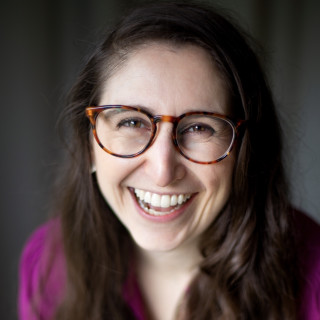“Something’s not right. I’m not healing right.”
She points to a few crusted sores. I lean in and rub my gloved finger over one.
“There’s a suture in there,” I say.
“There is?”
“They didn’t tell you there were sutures you needed removed? … Did they tell you the sutures would dissolve?”
“They didn’t tell me anything.”
This is how I began a visit with a patient who had undergone a liposuction-breast augmentation-butt lift at a practice several states away. During our 45-minute session, I found and extracted 3-week-old embedded sutures from 10 or so different sites. The patient still couldn’t sit or lay supine, so we worked in a dance of positions to get her recovery back on track.
In the past six months, the rate of young healthy people in my practice requesting surgical clearance for cosmetic surgeries has risen dramatically. These surgeries are increasingly minimally invasive, which may lower recovery times and risk, but the technological advances have not lessened the need for quality nursing care and patient education. Patients should be able to access procedures that affirm their identities and allow them the greatest amount of self-expression. But when patients find surgical “deals” that make procedures more affordable, it seems the “savings” come from offloading much of the patient care onto primary care clinicians.
I am often asked to medically clear individuals for surgery without any description of the anesthesia plan or their expected recovery. Patients come with forms, insisting that I “must” sign. There are labs I “must” order, notwithstanding the fact that I’ve been given no explanation of the medical rationale for the surgery, or its expected outcomes. And, once I sign the form, the patient flies out of state, completes the procedure, and remains for a brief period of time (how long? Who decides? Not me!). Then the patient flies home … where the PCP is expected to manage complications and follow-up care.
I had one patient fly home with a J-tube still sutured in. She called my office for an urgent visit when the surgical team neglected to ensure she could remove it herself. Another patient told me she had a J-tube placed out of state, but they had removed it while the region was still draining because the patient “had to leave.”
My point is not that I am under-prepared to remove a suture or drainage tube. Rather, my point is that, when patients have concerning issues — like not understanding what they are supposed to be doing post-op, or what can go wrong if they fail to follow recommendations, or, worse, how to manage complicated healing or dissatisfaction with the results — I do not have the clinical expertise to support them independently. In my 10 years as an RN, and 7 years as an NP, I’ve had very little continuing education concerning cosmetic and bariatric surgery follow-up and management. Even in the very best circumstances, these are procedures with lifelong modifications. When patients come to me post-op, I simply don’t know enough about their procedures or recovery plans; I have to send them back to the out-of-state practices they came from — businesses that my patients often report are hard to reach. Inevitably, these patients wind up ping-ponging between two offices, and, in the nightmare scenario, land on a message board or Facebook group, which offers them unverified (potentially dangerous) solutions.
I’m looking to build bridges with my surgical colleagues — not leave patients out hanging. If I sign a clearance for surgery, is it so much to ask that I be sent a summary of the surgical procedure? If there is a patient education packet, couldn’t that be sent along with the forms I “must” sign? At the end of the day, we — the patient, the surgeon, and me — all want the same thing: for the patient to have a great outcome. To get there, we need to build more communication into our shared effort to care for patients.
Have you noticed gaps in patient care? How can care teams collaborate better? Share your solutions in the comments.
Dana Kroop is a family NP based in Chicago, Illinois. Originally trained in the history and philosophy of science at University of Chicago and Cambridge University, she spent her first professional years working in education at The Field Museum of Natural History. Driven to use science communication to best empower individuals, she then decided to become a family NP, training at the University of Illinois under an HRSA-funded ANEE Traineeship, and then completing her post-graduate residency at Community Health Center, Inc. Dana is a bilingual Spanish speaker and currently works at a Federally Qualified Health Center on Chicago's West Side. She is a 2020–2021 Doximity Op-Med Fellow.
Image by GoodStudio / Shutterstock







